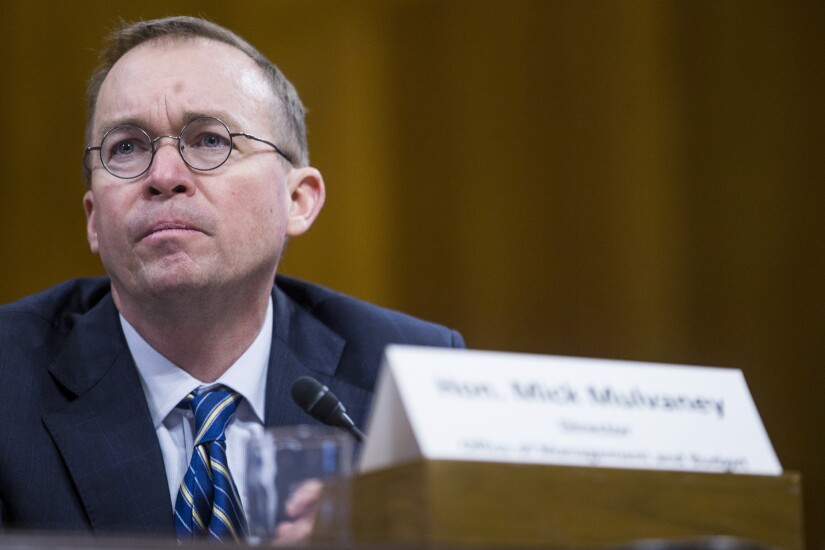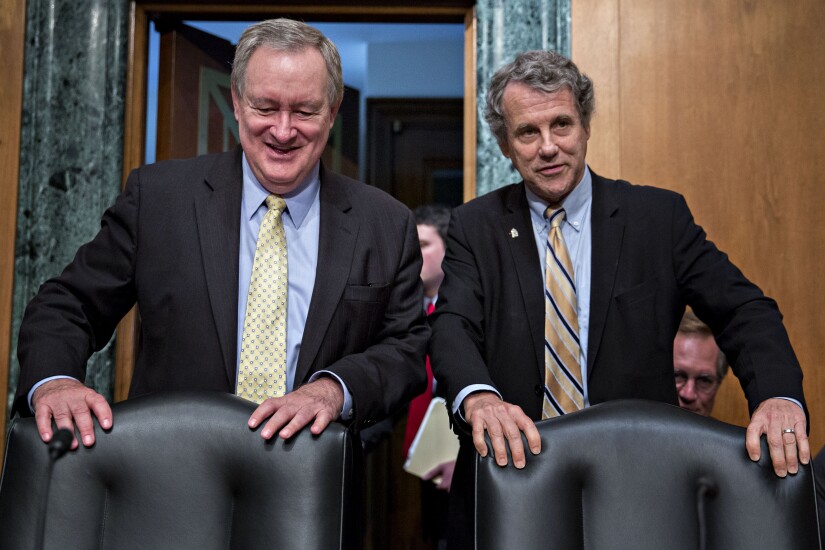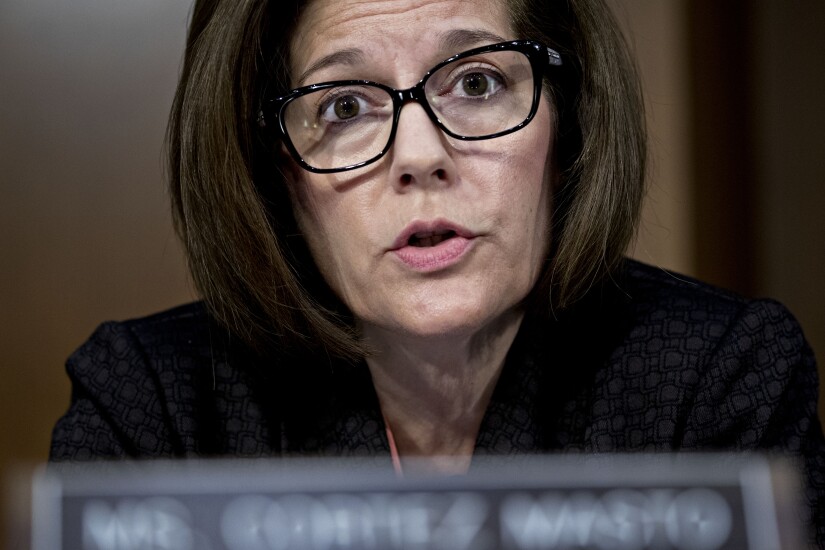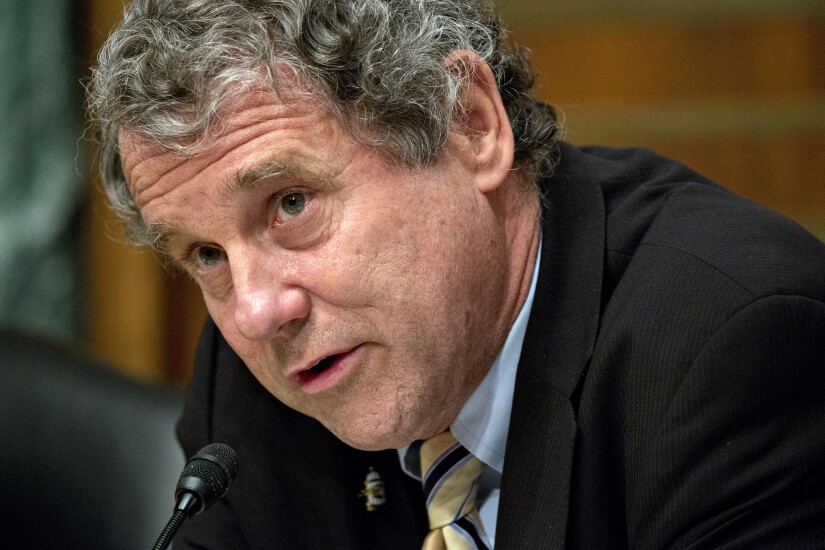WASHINGTON — For the second consecutive day, acting Consumer Financial Protection Bureau Director Mick Mulvaney was in the hot seat on Capitol Hill, tackling criticism from the founder of the agency he runs, defending his review of a final rule to rein in payday lenders and answering concerns he plans to take the bureau's consumer complaint portal private.
It was his first testimony before the Senate Banking Committee in his role as consumer chief — Mulvaney also serves as head of the Office of Management and Budget — and he was careful not to give his views on the outcome of a slew of reviews he has undertaken of the agency's operations and powers.
Following were the top takeaways from Mulvaney's hearing:
Will the CFPB abandon its rule to restrict small-dollar lending?
One major concern by Democrats was whether Mulvaney plans to gut or rescind the CFPB's recently enacted rule to rein in payday lending. Mulvaney has publicly said he's against the rule and suggested it should be overturned by Congress, but claimed Thursday he had not made a decision on how to reshape the regulation.
“I don’t automatically conclude that making an indication to revisit the rule assumes that we will be revoking the rule or even changing the rule,” Mulvaney said. “I have the right, under the statute, to revisit the rules which I am doing, but we have not arrived at any preconceived notions of outcomes.”
Democrats are concerned that any changes to the rule would allow more predatory lenders into the small-dollar consumer loan space while Republicans and the industry argue the regulation went too far and will cut off access to credit.
“There was a great deal of work that went into it. I think the previous director took those actions because of an ongoing need” to regulate payday loans, Sen. Mark Warner, D-Va., told Mulvaney. “I was disappointed you took that as your first action” to review the rule.
Sen. Doug Jones, D-Ala., suggested there was a dire need to restrict payday lending because it traps consumers in a cycle of debt. But Mulvaney suggested that it was the role of state and federal lawmakers, rather than a federal agency, to check payday lenders.
"The best way to address the problem that you perceive is to pass legislation and not rely on me to do it for you," Mulvaney said.











